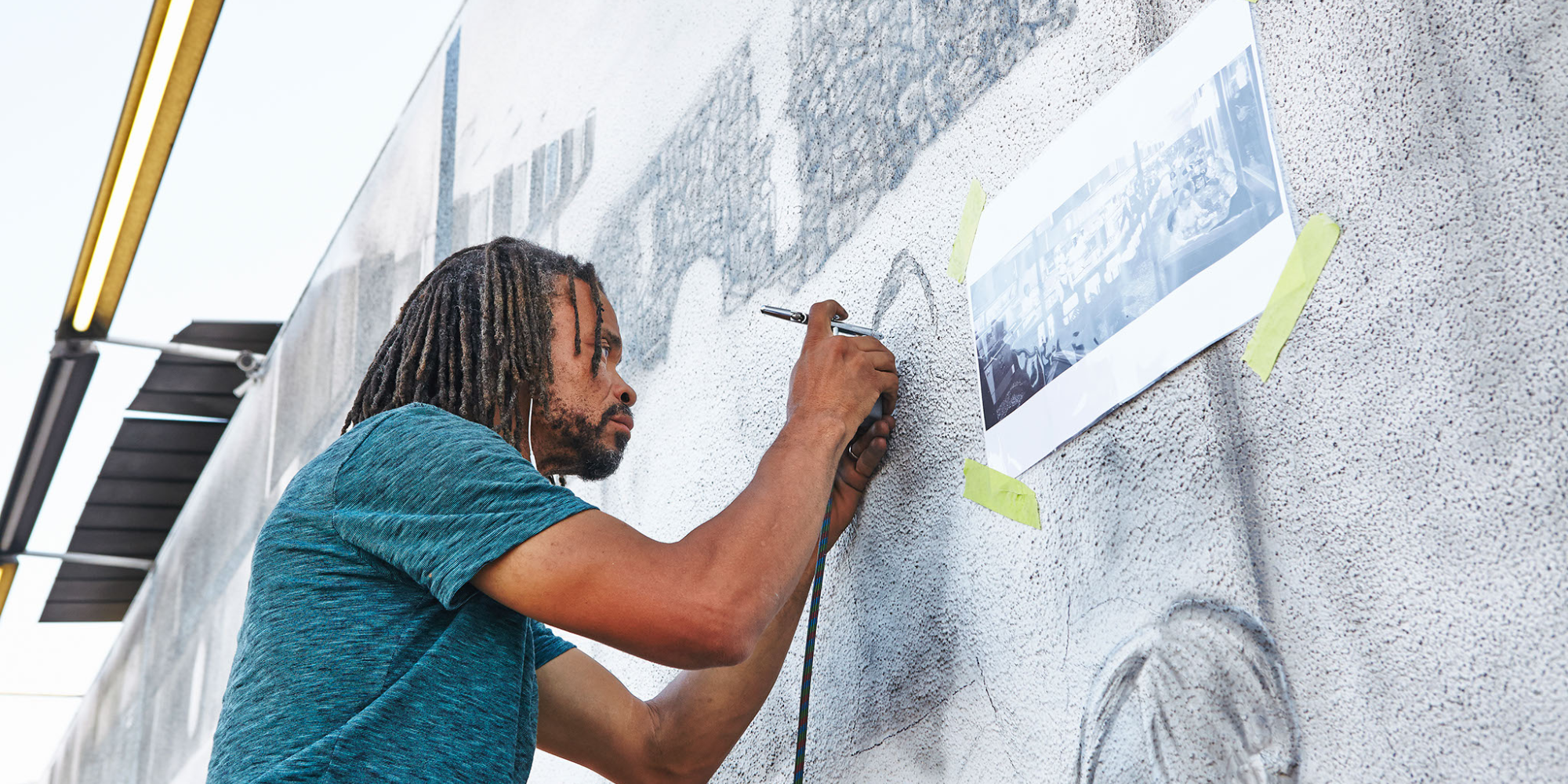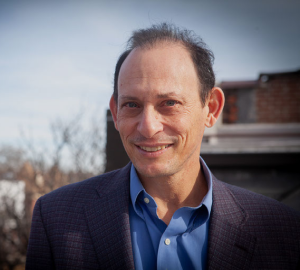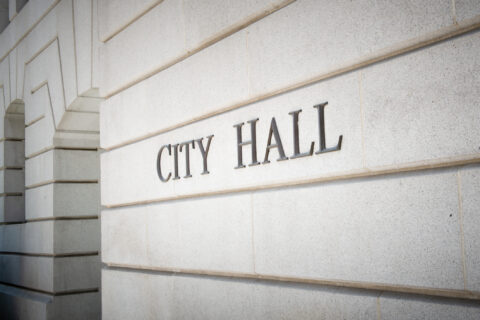In September 2020, 47 cities made commitments to new initiatives to support inclusive economic development and innovation at the Kauffman Mayor’s Conference on Entrepreneurship. NLC’s City Innovation Ecosystems program collects and tracks these commitments to showcase successes, identify best practices, and connect peer cities that can learn together. Here we share the story of one city’s work:
When public life and the economy first ground to a screeching halt in the spring, organizers of the Emergency Gap Fund for Philadelphia’s Black Working Artists knew the $500 relief payments were both essential and a short-term fix.
What wasn’t yet clear was how The Village of Arts and Humanities, an iconic nonprofit with deep roots in North Philly, could provide more foundational support to the nearly 400 working artists who sought emergency relief.
At City Hall, the pandemic and its aftermath were simultaneously driving an ambitious effort to “reimagine” a more inclusive economic recovery from COVID-19 — one that Deputy Commerce Director Karen Fegely says will include more city outreach and support for informal entrepreneurs ready to enter the formal economy.
For this initiative, her conduit to reaching those artists, artisans, hairstylists, music producers, seamstresses and others working outside the system but looking to take the next step became The Village, already a city partner in helping manage a commercial corridor in Fairhill-Hartranft, a predominantly Black neighborhood on the north side.
“I wanted to be in this space,” Fegely says. “But we needed to go through a partner to do it. And The Village is just a great partner. They have that trust in the community.”
As the pandemic-hastened definition of “work” (and workplaces) continues to evolve, Philadelphia’s desire to more actively nurture its creative class, particularly in communities of color, led Fegely to formalize the city’s commitment through NLC’s 2020 City Innovation Ecosystems program.
She joined a cohort of six other cities, including Interstate 95 neighbor Wilmington, Delaware, that will work with technical expert Rising Tide Capital to license the businesses of at least five entrepreneurs by July of next year. The city also plans to enlist another partner organization to assist with business training and additional technical assistance.
“What’s really important for artists in particular is to be aware of, and advocate for their access to different programs that exist to support small businesses,” says Aviva Kapust, executive director of The Village.
“The way we think about small business is changing,” she adds. “It’s not just bricks and mortar. And the city is beginning to see that. They’re interested in learning how to best support working artists who, with support, may be able to take advantage of the resources that are available.”
With the already-dire impact of the pandemic on small businesses well-established, city statistics show that it’s also had a disproportionate impact on minorities in Philly.
From mid-March through July, more than 208,000 Philadelphians filed for unemployment — an average of more than 10,000 claims per week, or roughly 10 times pre-COVID-19 levels.
The city’s enhanced collaboration with the community-based arts’ activist organization also extends to a commercial redevelopment project with a tentative March 2021 opening.
It’s not just bricks and mortar. And the city is beginning to see that. They’re interested in learning how to best support working artists who, with support, may be able to take advantage of the resources that are available.
Aviva Kapust, Executive Director at The Village
That effort will enable roughly a dozen working artists to rent below-market studio space above a new commercial laundromat that will double as a gallery space to host art exhibits, literacy enrichment programs, and other community services.
The studio occupants in turn will receive what Kapust calls “boot camp-style” personal and business financial training—and access to match grant savings in order to accelerate their business.
“We see some of the same challenges facing small business owners (unlicensed) also impacting working artists’ access to capital and technical assistance,” she says. “They may not have all the traditional structures in place to show they’ve paid taxes and don’t trust the agencies and groups who are offering loans and grants.”
The effort arises at a time when the role and value of the creative class — and many of its members’ precarious financial footing — is being more widely recognized with the virtual cessation of concerts, art exhibits and the like.
“We all feel the absence created in our society when artists are not able to make their work and provide their services,” Kapust says. “The pandemic made that really clear. So this is a chance to think about how we can continually invest in building capacity with and for working artists—especially Philly’s Black working artists who have been disproportionally affected by COVID-19.”
Both Fegely and Kapust expect that seeing how other cities approach similar challenges, along with the public commitment to progress, will provide an added spark to solidify an already successful public-private partnership.
“This aligns just so well with our mission,” Fegely says. “To be part of a network like NLC and to have this additional support, with peers and best practices to pull from — and the additional accountability of holding us to what we said were going to do — all those things seemed like a no-brainer.”
“I hope this lights a fire under us both,” Kapust adds. “The Village has always been partial to making small bets: thinking really big and testing really small.
“That is not practiced as frequently within government agencies. The smaller things fall through the cracks sometimes, even though they can be easier to try. I really do hope this is something we can test, replicate, and scale.”










